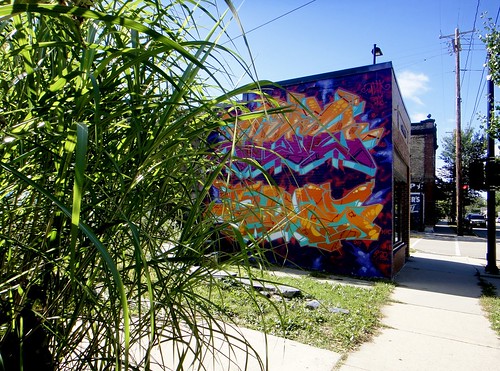"Perhaps that's because the song itself doesn't look to the past — rather, it's an anthem of hope for a future where change is always possible," concludes NPR in
"'The Times They Are A-Changin'' Still Speaks To Our Changing Times." Excerpt:
As the 1960s faded into the '70s, the urgency of the song faded, too. Bob Dylan moved on to other things, and the generation he first sang for grew up and...
I'll complete that sentence more bluntly: ... turned into the people who needed to get out of the way because their time was up.
The article goes on to describe the use of the old song, which anchors Bob Dylan in his political protest time, from which
he changed. But Baby Boomer politicos have always harked back to it, and it serves them — I'm not including me — right to have that song sung in their face now that they are old and not ready to roll over for whatever advancement the young people think is due.
I don't include myself because I've never liked the forefronting of Protest Bob. "The Times They Are a-Changin'" is the song picked out from all the others by people who don't really know and love Bob. I don't like seeing him used this way, restricted to this narrow version.
And the words are to cruel and anti-inclusive to use generally (outside of the literal blocking of doorways in the desegregation era).
Come senators, congressmen
Please heed the call
Don’t stand in the doorway
Don’t block up the hall
For he that gets hurt
Will be he who has stalled
The battle outside ragin'
Will soon shake your windows and rattle your walls
For the times they are a-changin'
NPR calls particular attention to that verse,
the third of five verses, because, I assume, calling out to authority figures and telling them what they need to do is more popular with protesters these days than speaking imploringly to "people" (verse 1), "writers and critics" (verse 2), "mothers and fathers" (verse 4), and the elite ("the first ones," verse 5).
And look at the threats of violence if you don't get up to the speed the singer is demanding: if you don't swim, you will "sink like a stone" (verse 1) and if you stall, you will get hurt (verse 3). Think what it means to revel in this song today: Accept my characterization that this is a fast-developing emergency, and if you don't do what I say, you're going to suffer terribly.
There are little spots where the song warns its singers not to be too smug and aggressive:
And don’t speak too soon
For the wheel’s still in spin
And there’s no tellin’ who that it’s namin’
For the loser now will be later to win
That's addressed to "writers and critics," so maybe that includes bloggers, even though Dylan's "writers and critics" are the ones who "prophesize with your pen" (and we're all typing now). He says "the wheel's still in spin," and you don't know who will win and lose over time. So be cautious, observant, and keep thinking clearly. Don't just jump onto the side you think is the winning side. It
keeps changing.
















